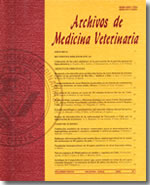Prion biology and bovine spongiform encephalopathy
Main Article Content
Abstract
The complex nature of prions has intrigued the scientific community during the last 70 years. Since the first indication of scrapie infectivity and the experimental transmission of the scrapie agent in 1937, prions and their associated transmissible spongiform encephalopathies (TSEs) have been under constant investigation. TSEs are neurodegenerative and fatal diseases with no early diagnosis, treatment or cure. Despite their diverse presentations, all TSEs stem from the infectious, spontaneous or hereditary conversion of the host-encoded cellular prion protein PrPC into the pathogenic isoform PrPSc. Based on the prion hypothesis, PrPC has the autocatalytic or induced capacity to change its secondary configuration from a mainly α-helix structure into predominant β-sheet configuration. Another enigmatic aspect of the prion biology is the potential physiological function of PrPC, a protein that is widely distributed in mammalian tissues and intensely expressed in the nervous system. PrPC has been associated to several biological roles including cellular adhesion, protection and differentiation. The unpredictable properties of the PrPSc and the complex presentation of TSEs have opened many questions yet to be answered. The potential zoonotic transmission of the bovine spongiform encephalopathy (BSE) has generated intense concern in the international community over animal product biosecurity. During the last years, research in prion biology has mainly focused on determination of the pathogenesis of TSEs and the development of diagnostic and therapeutic methods. However, further research in prion biology is required in order to understand the complex nature of TSEs and how these diseases can be controlled.

